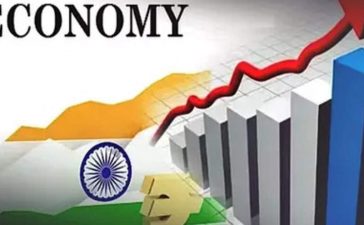On Monday the chancellor, Jeremy Hunt, pledged in his Conservative party conference speech to look again at strengthening sanctions to make sure people cannot exploit the UK’s “safety net” for a “life on benefits”. As someone who receives benefits and faces the threat of sanctions every day, his speech made me feel sick and cross.
As I returned home from my day working as a learning support assistant and listened to what Hunt said, I wondered: have I not worked hard enough today? There’s no room for working parents on benefits in his simplistic depiction of people working hard on the one hand, and those living a life on benefits on the other. But that’s not my life, nor that of millions of parents just like me, facing in-work poverty and the ever-present threat of sanctions, even when they are in paid work and using what spare time they have left to care for their children.
My annual income is about £14,000 for 30 hours’ work a week during term time. It’s simply not enough to get by. The language that Hunt uses to criticise people on benefits scares me, and only adds to the worry I face. Hunt paints life on benefits as something people would choose. But that’s not my reality. I work hard and claim benefits just to survive and to try to keep me and my child above water. Our life couldn’t be further from a life of luxury. As I type this, I am sitting here with £6 in my account to last me until I get paid in the middle of the month, which is still almost two weeks away. I’ve managed to make sure that all the basic essentials are paid for. But if my car breaks down or there is an emergency, what then? The price of everything has risen but my wages have not. This is no way to live, and certainly not a lifestyle choice anyone would make.

So how did I end up with a “life on benefits”? I am a single parent to a daughter in secondary school. I have been trying hard for years to get on the ladder Hunt believes everyone can climb to progress and better themselves. But the ladder doesn’t exist in rural areas such as mine, where for decades there’s been failure to invest in communities. Where I live, public transport barely exists. When I was moved on to universal credit from tax credits, I ended up in debt because it was discovered that an overpayment had been made in the past – something I now know is very common for working families facing this transition. More than £80 a month was taken off my support, which meant I couldn’t pay my bills on time. This left me facing even more debt, and higher payments, which took almost a year for me to pay off.
So let’s talk about sanctions. Despite having a job, and working 30 hours a week, I’m at risk from sanctions. If I forget to log in to the jobcentre’s online system to accept my commitments to keep looking for work, I could lose my support. If that happens, I would be unable to afford to travel to work. This would push me deeper into poverty, and mean I’d face the risk of losing my job. It makes as little sense as that sounds. All that the threat of sanctions speak to is a failure of the system to look at people as individuals. Instead, we are all treated the same, as a problem that needs to be fixed.
All of this matters because people need compassion, especially when times are hard – as is so often the case when you’re on benefits. But what do we get instead? Being constantly kicked when we’re down just pushes us further away from society; making us feel excluded and undeserving. It feels as if the poorest are just easy targets; who politicians return to again and again, and especially when they think there’s a vote in it.
The solution isn’t squeezing people more, it’s fixing our public services, improving our social security system, making sure people can afford the essentials – and giving people hope. I’d like to see a politician brave enough to stand up and say that, but sadly it looks like I may be waiting some time.
-
The writer is a participant in Changing Realities, a University of York research programme documenting life on a low-income and pushing for change
-
Do you have an opinion on the issues raised in this article? If you would like to submit a response of up to 300 words by email to be considered for publication in our letters section, please click here.










